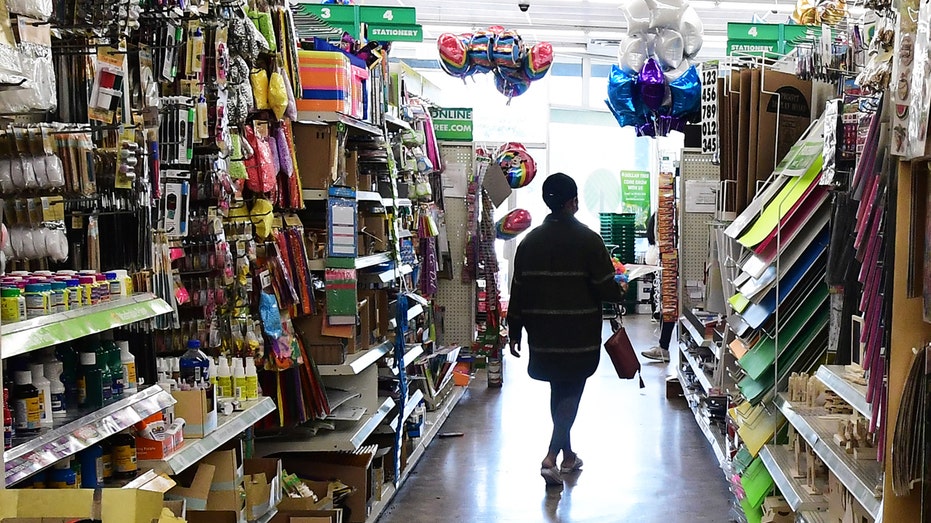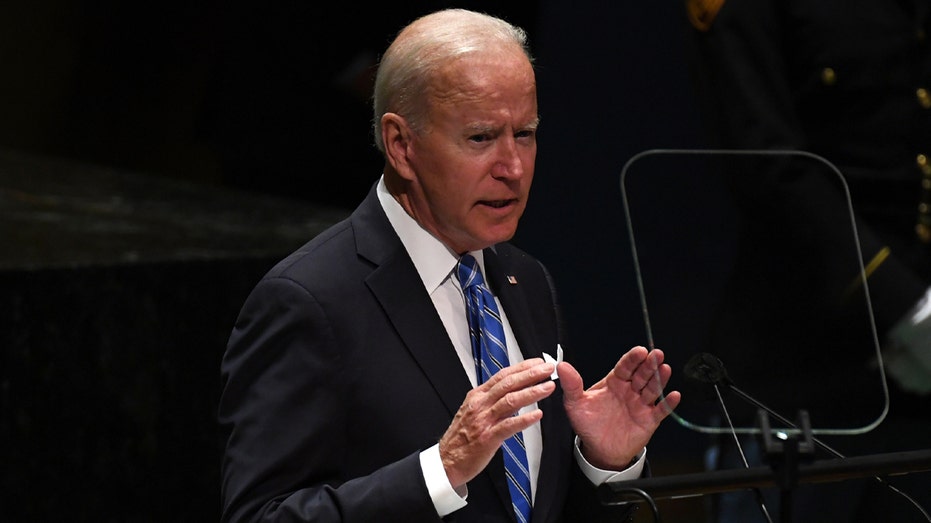Surging inflation will cost most US households $3,500 this year, analysis shows
Households need to set aside 6% of budget to allocate for inflation
The Fed sees inflation is a problem: Investment expert
Crossmark Global Investments Chief Investment Officer Bob Doll predicts what decisions will be made at the upcoming Federal Reserve meeting.
The hottest inflation in nearly four decades will cost millions of Americans an additional $3,500 in expenses this year, according to a new analysis published on Wednesday.
Findings from the Penn Wharton Budget Model, a nonpartisan group at the University of Pennsylvania's Wharton School, show that most U.S. households will need to allocate at least 6% more of their budget in order to sustain last year's spending level on goods and services. That figure is even higher for low-income Americans, who need to increase their spending by at least 7%.
CBO: BIDEN SPENDING BILL ADDS $367B TO DEFICIT, NOT COUNTING IRS TAX ENFORCEMENT
The recent inflation burst is disproportionately hurting lower-income households, largely because they collectively spend more on energy – which has seen some of the wildest price swings over the past year – while wealthy Americans spend more on services, which has seen the smallest inflation increases.

A shopper walks through the aisles of the Dollar Tree store in Alhambra, California on Dec. 10, 2021. (FREDERIC J. BROWN/AFP via Getty Images / Getty Images)
That could mean, based on 2020 spending data, that the bottom 20% of income-earners saw their consumption expenditure increase by 6.8% to $2,120 per household, while the top 5% saw a 6.1% increase, or roughly $7,636 per household. Middle-income earners also saw a large increase in expenses, with an increased consumption expenditure of $4,351, or an increase of 6.8%.
"Since higher-income groups had a bigger increase in expenditures in all categories, they also saw a bigger increase in total expenditure," the analysis said. "However, because of variation in the composition of consumption bundles, we find that higher-income households had smaller percentage increases in their total expenditure."
The Penn Wharton analysis comes on the heels of a new government report that revealed consumer prices soared 6.8% in November from the previous year, the fastest pace since June 1982, when inflation hit 7.1%.
HOUSE GOP REELECTION ARM SPOTLIGHTS 'HISTORIC INFLATION' CAUSING 'NOT TO MERRY CHRISTMAS'
Price increases were widespread: Energy prices jumped 3.5% in November and are up 33.3% year over year. Gasoline is a stunning 58.1% higher than it was a year ago. Food prices have also climbed 6.1% higher over the year, while used car and truck prices – a major component of the inflation increase – are up 31%.

President Biden addresses the 76th Session of the U.N. General Assembly on Sept. 21, 2021 at U.N. headquarters in New York City. (Timothy A. Clary-Pool/Getty Images / Getty Images)
Rising inflation is eating away at strong gains and wages and salaries that American workers have seen in recent months – bad news for President Biden, who has seen his approval rating plunge as consumer prices rose. The White House has blamed the price spike on supply-chain bottlenecks and other pandemic-induced disruptions in the economy, while Republicans have pinned it on the president's massive spending agenda.
A separate Gallup analysis published at the beginning of the month shows that about 45% of households are being hurt by the recent price spike. Roughly 10% said the increase had affected their standard of living, while another 35% described the hardship as "moderate."
GET FOX BUSINESS ON THE GO BY CLICKING HERE
The effect is more pronounced among lower-income families: 71% of those making less than $40,000 a year say they experienced hardship, compared with 29% of those earning more than $100,000 a year. What's more, 28% of Americans who are considered lower-income said the hardship they are experiencing is severe and hindering their ability to maintain their current standard of living.
It's unclear when consumers can expect to see inflation begin to slow, with prices for an array of goods continuously climbing higher.
